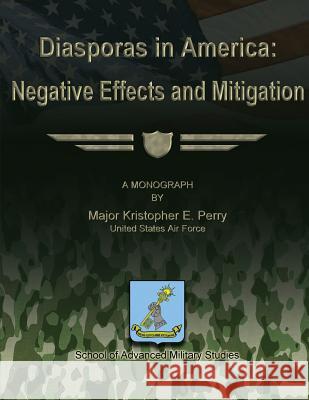Diasporas in America: Negative Effects and Mitigation » książka
Diasporas in America: Negative Effects and Mitigation
ISBN-13: 9781479287215 / Angielski / Miękka / 2012 / 74 str.
Throughout human history, people have migrated from one place to another across the globe. Since the creation of nation-states, the migration of people has been seen as emigrating from one country and immigrating to another. Immigration has recently become a vital issue for many governments throughout the world to address. The purpose of this monograph is to explore a certain type of immigration, known as "diaspora formation," specifically with respect to the United States. Historically, the word "diaspora" has referred almost exclusively to the forced Jewish population dispersion throughout the world and their eventual return to their homeland. However, in modern times, the word "diaspora" has taken on a different context altogether. Advances in technology, such as communication and transportation, as well as a worldwide economic imbalance of have's and have not's, have enabled modern diasporas to become an international force, politically and economically. The open, wealthy societies of the West, especially the United States, have become targets for millions of people in less-privileged societies to settle in a new country, earn income to send back to the homeland, and even wield diplomatic influence within countries in which they have no intent to become citizens. The drain of money, both domestic and international, and the increasing political influence resulting from diaspora formation, is undermining the elements of America's national power. This monograph examines the negative effects of diasporas within the United States and concludes that the federal government must take affirmative steps to recognize the negative effects of diasporas and to develop an enforceable policy for dealing with diaspora formation within its borders. Without recognition and affirmative action, the United States will see its economic and diplomatic elements of national power continue to dwindle in the years ahead.
Zawartość książki może nie spełniać oczekiwań – reklamacje nie obejmują treści, która mogła nie być redakcyjnie ani merytorycznie opracowana.











